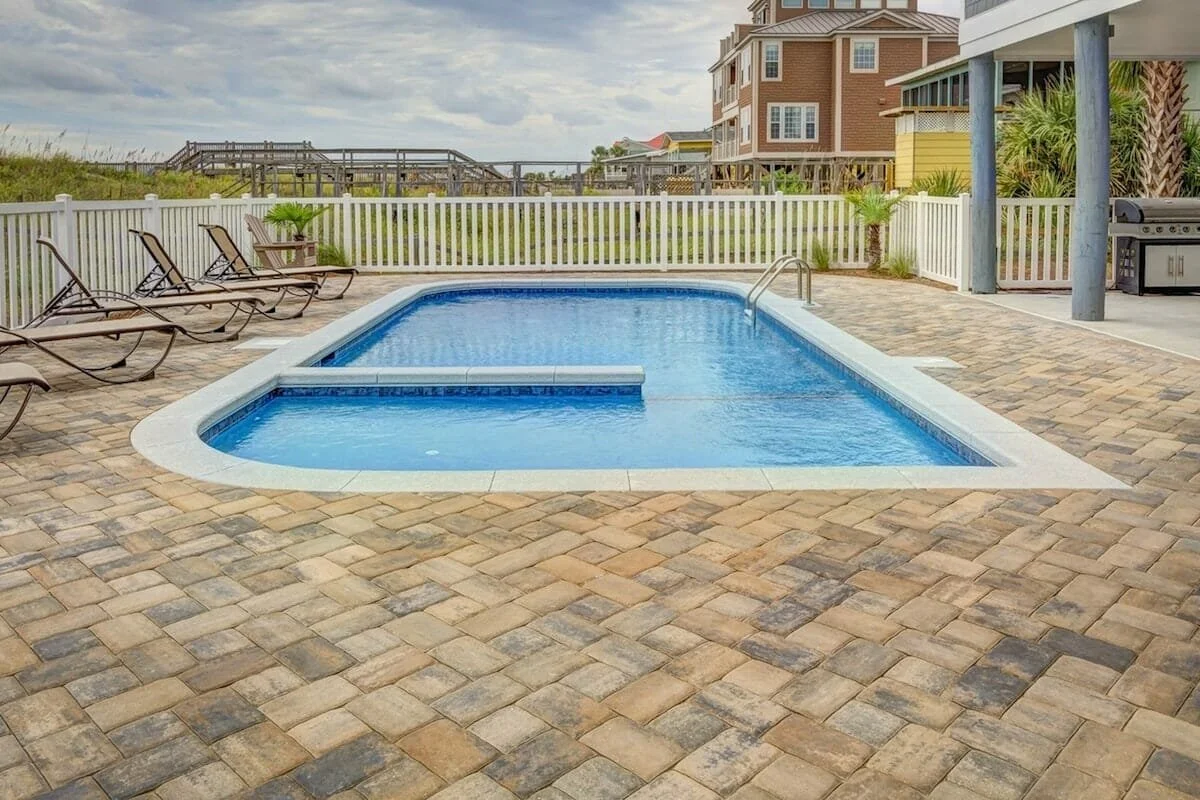The Differences Between Plaster and Pebble Tec
Whether you are resurfacing your existing pool or you are starting a new construction, one of the biggest decisions you have to make is how you will surface it. There are many factors that come into play including cost, durability, and maintenance to name a few. Below we will talk about two of the most popular options for pool surfacing, plaster and Pebble Technology, often referred to as Pebble Tec®.
The Pros and Cons of Plaster
Plaster is one of the most common pool surfaces, especially in older pools. It is generally less expensive than Pebble Tec® and relatively durable. However, there are some downsides to using plaster in your pool.
Plaster is comprised of cement and crushed marble, which means it is rather porous and can harbor bacteria. In addition, the nature of the mixture makes it prone to discoloring and stainable. Lastly, plaster surfaces only last about 5-7 years and, if not properly maintained, can begin to pollute your water with white sediment as it wears.
How Pebble Tec® is Different
Although the process was originally patented in 1974, Pebble Technology has gained new popularity in the last decade or so. With its U.S. headquarters in Scottsdale, AZ, Pebble Technology International has a range of successful product lines in the pool surfacing category. These products, including Pebble Tec®, use pebbles as the main element in their surfacing process, creating a non-slip texture and beautiful appearance.
Pebble Tec® is an extremely high-quality material and can last over 20 years with proper care. It comes in a number of different colors and is stain-resistant. And if you prefer the texture of plaster, PTI also offers smoother textures with their Pebble Sheen® and Pebble Fina® product lines.
So this time, instead of white plaster, consider enhancing your pool with the ocean-like appearance of Pebble Technology. Due to its amazing longevity and innovative technique, we only use Pebble Tec® here at Saturn Pool Company. If you are interested in learning more or taking the next step, contact us today!

